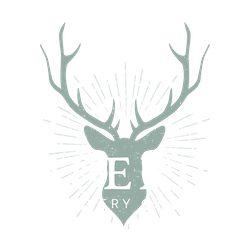









Sometimes the hardest part is slowing down long enough to get real help. Life keeps moving—family, work, whatever else. But for many people in active addiction or deep in a mental health crisis, structure and space are necessary. Not optional.
That’s what residential treatment offers. It’s a pause, but not an escape. A place where recovery isn’t just talked about in theory but practiced, daily. And that—well, it’s different than just “going to rehab.”
In Colorado, residential treatment programs vary a lot. Some are clinical and highly structured. Others feel more like healing environments. Most are somewhere in between.

In short, it’s 24/7 care. You live on-site, eat there, sleep there. Therapy, groups, medications, accountability—it all happens in one place.
People often come straight from detox, or after hitting some kind of wall that outpatient just couldn't reach. Sometimes it’s a personal rock bottom, other times it's a nudge from family or even a court system. Either way, it’s usually not a casual decision.
But not every residential program is the same. Some are short-term, just a couple weeks. Others last months. Some feel institutional; others are more like recovery communities. You may find one that feels right straight away. Or not. That’s okay.

Most residential treatment programs in Colorado follow a structured schedule:
Meals are regular. Sleep is encouraged. Phones are usually limited, at least early on. There’s a reason for that—sometimes the outside world is too loud to hear yourself think.
It’s not always comfortable. Honestly, it’s often not. But discomfort isn't always bad. It’s where some people finally get honest.

Colorado Springs has become a kind of hub for recovery in recent years. It’s a little quieter than Denver, a little slower maybe. Some people find that helpful, especially when trying to reset. Others want more intensity—more movement.
The residential treatment centers in Colorado Springs tend to reflect that mix. Some offer trauma-informed care, co-occurring disorder support, or faith-based models. A few are smaller, more intimate, which some people prefer. There’s a bit of everything here. But you still have to look closely.
No program works for everyone. Sometimes the first one doesn’t work at all—and still ends up being the right beginning. Strange how that happens.
In Denver, there are more choices. Bigger centers, more specialties. You’ll find programs for substance use, dual diagnosis, mental health stabilization, and combinations of all three.
It can be overwhelming. I’ve seen people scroll through ten websites and still feel more confused than when they started. That’s normal.
The good part? Because Denver is larger, you’ll find programs with different philosophies. Some lean heavily into 12-step work. Others focus on trauma processing, or cognitive behavioral therapy, or family systems. Some mix it all together.
Of course, all of them promise transformation. That part's tricky. Some deliver. Others... you’ll have to judge for yourself.

Maybe. Maybe not. It depends on where you’re at—mentally, physically, emotionally. If outpatient hasn’t worked, or if relapse keeps happening, it might be time. Or if things just feel too chaotic to even know where to start.
Residential treatment isn’t a magic fix. But it can offer a foundation. A safe place to fall apart, if that’s what’s needed. Or to start rebuilding, one small piece at a time.
Sometimes people enter a program reluctantly and leave it changed. Other times, they leave still struggling—but with more clarity than they had before. That can be enough, too.
At Step One Recovery Resources, we don’t run a treatment center. We’re not trying to fill beds. Our goal is different: help people find care that actually fits. Residential treatment in Colorado doesn’t have to be a mystery or a guessing game.
Whether you’re leaning toward residential treatment Colorado Springs, or comparing residential treatment Denver programs, we help you weigh the options. And if we don’t know the answer, we’ll help you find someone who does.
There’s no one-size-fits-all path forward. But there are better questions you can ask. And better tools to make the search less exhausting.
You don’t have to figure everything out today. Just take the next step.
We’ll meet you there.






















